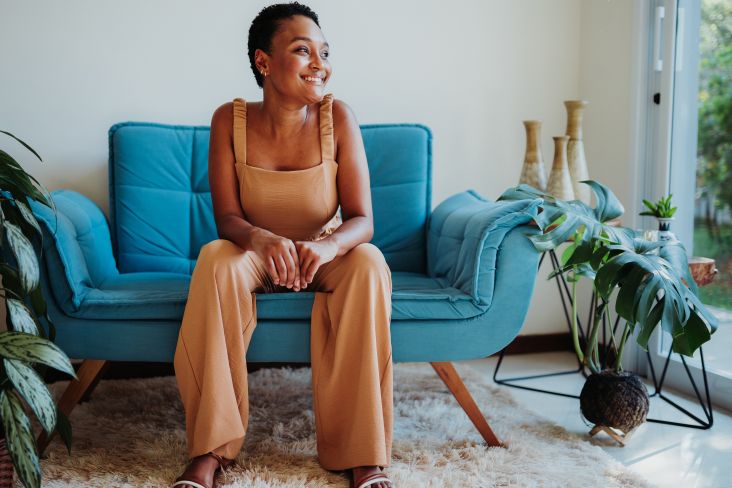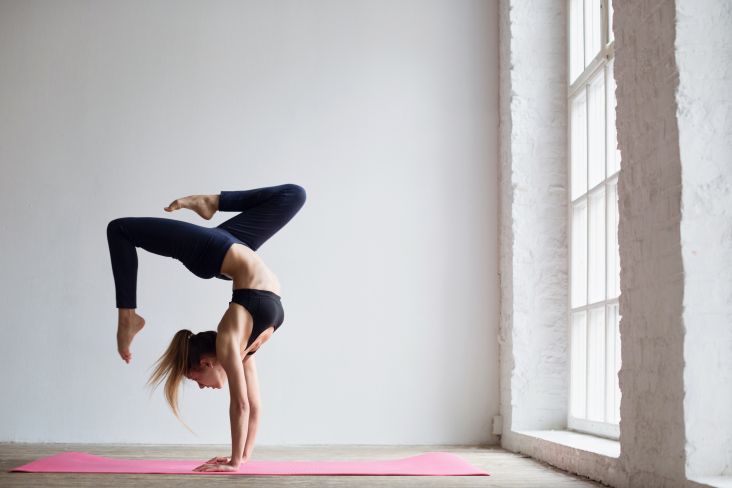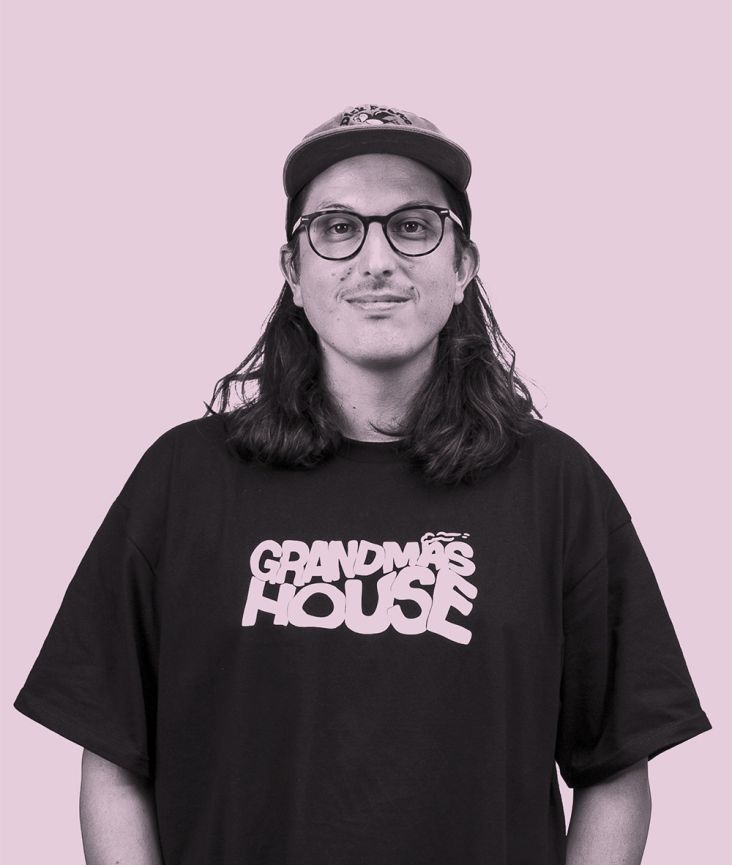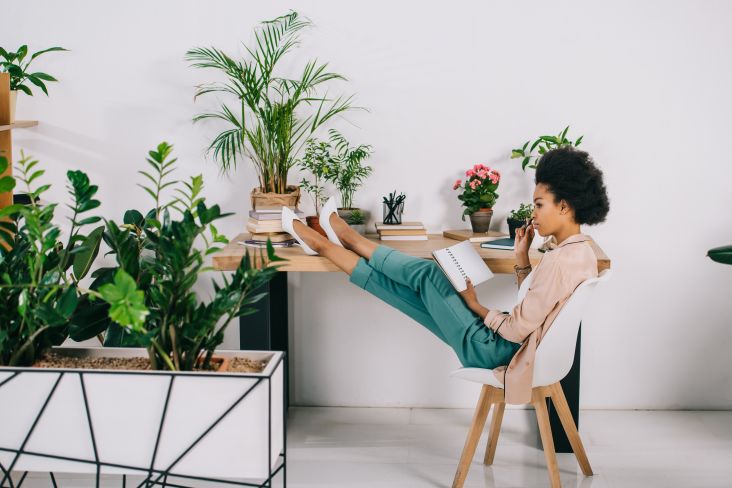Staying motivated this winter: tricks from creatives to help your mental health
For some, winter is a happy season, cosy and comforting, and full of promise. But not everyone enjoys the darker, colder months. Here, creative freelancers share their top tips for fighting depression during this time.

Image licensed via Adobe Stock
Winter is coming. And although theory, we all like the idea of snow-laden landscapes and rosy-cheeked carol singers, in practice, winter is not always the happiest time for many creative freelancers.
While there are plenty of benefits to working independently, feelings of isolation can become heightened during the coldest season, with fewer opportunities to meet others and freezing temperatures making us feel trapped indoors.
Staying happy and motivated through dark mornings, gloomy days, and early nights is a particular struggle for sufferers of SAD (seasonally adjusted depression), who find the lack of sunlight disrupts their internal clock and reduces the amount of serotonin – the happiness chemical – their bodies produce.
Plus, this year, all these effects will be more marked than ever, with rising prices causing hardship, financial stress, and even the potential of power blackouts.
So how to deal? To mark World Mental Health Day today, we asked the Creative Boom community for their best advice on keeping mental health in check through winter. We'll share the best tips and tricks below.
1. Build relationships
Self-enforced isolation can be one of the best things about freelancing, enabling you to shut out the world and really focus on doing the thing you love. But if that's all you do, your mental health can begin to suffer, especially during the winter, when people generally see less of each other anyway. So it's important to build online and offline relationships that can help sustain you during these cold and dark months.
As the team at Hull creative agency Business 101 puts it: "Make sure you come out of your mind-palace every now and again to contact with the outside world! It's tempting just to keep hammering away, but touching base with the real world – as disappointing as this can be in these times – is pretty important."
But if you don't know anyone, where do you start? "Join networks and communities with similar creative interests," suggests designer Jonathan White. "You never know where the conversations might lead."
And remember, it's less about meeting the 'right people' and more about communicating generally. "For me, it's about making sure to get out and talk to somebody every day, whether that's other dog walkers, a barista or going to a co-working space for a few hours," says illustrator Vicky Hughes. "I need social interaction, no matter how small, to remind me of the big world beyond my home studio."
And if you find you're going for days without chatting to people, why not literally plan it into your day? "I schedule 10am meetings so that I can start the day talking to someone," says Kaye Symington, co-founder of the agency Paved with Gold. "This helps get into the right mode for the rest of the day."
2. Get some fresh air and experience nature
If there's one thing guaranteed to wear you down over winter, it's being stuck within the same four walls. "So no matter what the weather is doing, always try and get outside for some fresh air," says motion designer Tom from Loop. "It makes a world of difference to get some natural light and fresh air, especially if you're freelance or working from home."
Life and career coach Sarah Lister agrees. "Get up and out for a walk," she urges. "Run or bike ride while the sun is rising. Notice the colour changes. Listen to the birdsong. Watch the morning mist. And go again while the sun is setting. Listen to the owls and the blackbirds. Take warm layers if it's cold, and perhaps a flask of tea or coffee. And don't forget your torch!"
Teacher Mat Bingham takes a similar view. "Visit farms and stroke goats, sheep, donkeys, horses, llamas, the farm cat, anything…" he says. "It's so relaxing, gets you in touch with nature, connects you with another living soul, and lets them know somebody loves them."
Exercise is one of the best ways to improve your mental and physical health, and you don't need to go all-out to get the benefit. The difference between no exercise and even a small amount of regular exercise can be huge.
3. Create a healthy routine
Creating a routine is known to help with depression, as it leads to healthy habits, reduces stress and improves interpersonal relationships. Of course, everyone's different, so you need to devise a routine that works best for you, which you'll eventually find through trial and error.
To take one example, stained glass designer Flora Jamieson begins by "getting up and out to see the sunrise, once it starts coming up at a sensible hour. This makes me feel like I've started the day with a win, had some exercise, and it's completely free. I like to have a sea or lake swim, followed by a good cup of coffee. After that, I'm practically invincible for a few hours."
4. Plan things to look forward to
A consistent routine is one thing, but you don't want your life to become Groundhog Day. Even if you love your work, repetition can grind you down after a while. So graphic designer Cat McLaughlin recommends "having things to look forward to gigs, hangouts with friends, a nice meal, day out somewhere scenic and interesting".
With budgets tightening in the wake of the cost-of-living crisis, options for days and nights out might be limited. But often, the simple things are the most rewarding, so make time for them. "Plan a wholesome meal," suggests illustrator Amy Lauren. "Something nutritious and indulgent. For me, it's a chicken roast. It gives me a great sense of control and self-esteem, particularly on days when I feel like I'm in the tornado."
"Escapism is important too," adds director and screenwriter Miles Watts. "Try and schedule a treat TV show or film into your evening a couple of times a week if possible." That's exactly what Julie Thompson Dredge, founder of Frame PR, has been doing lately. "I recently started watching the comedy Schitt's Creek, rather than news and documentaries," she explains. "And it is so much better for the soul."
5. Build positive habits
Once you develop a bad habit, like smoking or biting your nails, it can be hard to stop. But the same dynamic can be used to improve your mental health if you harness it to develop good habits instead.
Here's a great suggestion from content marketing consultant Abbie. "Make Post-it note Friday a daily ritual for those more depressing seasons," she says. "Take five minutes to reflect on that day, and write the positives. It's not toxic positivity; it's just reminding you to see the balance and to focus on what's meant the most to your success at that time."
Kiesha Meikle, editor at StyleAble magazine, offers another. "I write three to-dos on a list, then celebrate big once they're done," she says. "I'm talking snacks, online shopping, chatting with a friend. Then I do the next three. I get a lot done, especially if I put a timer on. Plus, I get the feel-good factor from actually completing tasks."
Art director Kirsten Murray shares another tried and tested technique. "Get a journal and keep a note of positive words or feedback you receive," she says. "When you're at the receiving end of criticism or some unkind words – and your inner-critic starts to believe them – reading the journal will help to give you a boost."
6. Limit your screen time
Many adults restrict their children's screen time… but don't actually do it for themselves. But we all know that spending too much time staring at our phones and tablets isn't good for us. So why not make winter 2022 the time you take action?
Again, this is something you can build into a healthy routine. "I take time to myself every morning where I clean, shower, make some coffee and breakfast, and don't use screens for about 45 minutes to an hour before starting work," says artist Nicole Rifkin. "I notice that when I give myself time to be a person, things don't feel as overwhelming."
Ben Veal, founder of Second Mountain Comms, takes a similar approach. "Intentional device breaks are vital to good mental health; that's certainly been my experience, anyway," he says. "One small life change I've made recently is wrapping a band around my iPhone so that every time I pick up my device habitually, I first have to ask myself: 'What am I doing?' This is a handy tip I picked up from the author Joshua Becker, and it's making a world of difference to me so far."
Ben adds one further tip. "As the nights draw in, turning on device blue light filters, and switching off screens by a set time each night, can also help us to fall into sleeping patterns more naturally."
While working as a freelancer can be serious business, it also gives you a lot of opportunities to have fun, so grasp that with both hands. Indulge in silliness.
7. Exercise
Exercise is one of the best ways to improve your mental and physical health, and you don't need to go all-out to get the benefit. The difference between no exercise and even a small amount of regular exercise can be huge.
"Exercise has pretty much been the only activity that consistently helps me through mental and emotional slumps," says multidisciplinary artist and documentary photographer Taylor B. Alarcón. "From reducing anxiety to listening to music, to forcing me to get out of the house, to increasing self-confidence."
Photographer Steven Jones concurs. "I always find exercise helps my mental health," he says. "Mountain biking and BMX are my favourites, but running is also great as you can just throw on your shoes and go out." Fellow photographer Nicola Davison Reed feels similarly. "I read Bella Mackie's brilliant game-changer book Jog On and started running," she recalls. "I've never looked back and run for mental wealth: the physical fitness is a bonus."
8. Let in the light
As we mentioned at the start of this article, one of the biggest challenges of winter is the lack of light. But if that's a problem for you, there are solutions.
"Let yourself go to sleep earlier if that’s your natural biorhythm," recommends illustrator Melissa Washburn. "Also, a full-spectrum light in the studio can really help with energy levels, focus, and mood during the day."
"I use a SAD lamp every morning as my makeup light," says author and photographer Sara Tasker. "It's the only way I've managed to work using one into my daily routine." Plus designer and illustrator Taaryn Brench adds that you should make the most of the available sunlight too. "As soon as the sun comes out, I grab my winter coat and rush outdoors to get the rays on my face," she says. "It works!"
9. Be silly
Finally, while working as a freelancer can be serious business, it also gives you a lot of opportunities to have fun, so grasp that with both hands.
"Indulge in silliness and try to limit your attention to fun stuff as much as possible," recommends illustrator Colin Kersley. "Make time for playing and creating for the joy of it, with no end product that you feel needs to be shared. Just enjoy the process of making weird things."
Designer Mark Leary adds a specific suggestion. "Carry sticky-back googly eyes with you everywhere!" he enthuses. "I guarantee you'll forget where you stuck them and get a big smile when you or someone else finds them."

























